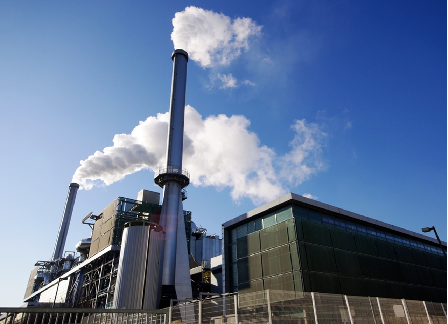Fracking is Depleting Water Supplies in America's Driest Areas
February 8, 2014Radionuclides in Fracking Wastewater
February 8, 2014By The Clean Air Council
The Barto Compressor Station in Penn Township, Lycoming County is creating pollution concentrations nearly three times the amount allowed under the federal health-based air quality standards. Recent modeling results show that the compressor station, which pressurizes natural gas extracted from the Marcellus Shale to achieve the desired flow along pipelines, is on its own causing nitrogen dioxide pollution 278 percent over the National Ambient Air Quality Standard (NAAQS). The modeling shows that exceedances can be measured a mile away from the station. Emission of oxides of nitrogen must be reduced by up to 76 percent in order to stay below unhealthful levels.
The Barto Compressor Station, owned and operated by PVR NEPA Gas Gathering, LLC, consists of nine compressor engines. Oxides of nitrogen are formed by fuel combustion within the engines. The U.S. Environmental Protection Agency (EPA) set a new 1-hour nitrogen dioxide NAAQS in January 2010. The standard was established at a level determined to protect the public from adverse health effects associated with short-term exposure to elevated levels of oxides of nitrogen. Health impacts include increased asthma symptoms, difficult controlling asthma and increases in respiratory illnesses. Furthermore, nitrogen dioxide contributes to the formation of ground-level ozone which can trigger a variety of health problems.
Clean Air Council has repeatedly requested that the Pennsylvania Department of Environmental Protection (PA DEP) require modeling for larger compressor stations to ensure that they do not cause pollution that will exceed the federal health-based standard in nearby areas. PA DEP, however, responds that because these sources are classified as “minor sources” of emissions they are not required to perform modeling and that by virtue of being a minor source the facility will not impact the NAAQS. However, while modeling is not required for a minor source, Pennsylvania law gives PA DEP ample authority to request modeling. This recent modeling study makes clear that these “minor sources” are having a major impact on local air quality and PA DEP must address this serious pollution.
PA DEP frequently points to its long-term air monitoring study as sufficient to ensure that Marcellus Shale operations are not having an adverse effect on air quality. However, the only location where PA DEP is monitoring for oxides of nitrogen is at the Houston Processing Plant in Washington County. The decision to monitor at this location is problematic because the Houston Processing Plant is one of the very few natural gas facilities in the state that utilizes electric compressor engines, instead of using engines that are powered by natural gas. Electric compressor engines do not emit oxides of nitrogen because combustion is not occurring.
“I am horrified after reading the results of the…Modeling Report on the Barto Compressor Station, which is located about 1200 feet from our home,” said Alison Rupert, “DEP has the authority – and I hope it will – to prevent my family and my neighbors in Penn Township from becoming a ‘sacrifice zone.’”
“I find [the results of this report] unacceptable and undesirable. The technology to reduce these kinds of emissions exists. We don’t have to reinvent the wheel – it’s already there. These companies have demonstrated that they are not going to employ it because of cost,” said Drake Saxton, resident who lives five miles from the Barto Compressor Station.
“This is just another knock against the environment from an industry that was sold as practically just water and dirt on the ground. From chemicals spilling out of trucks to noxious emissions from compressor stations, it’s proving to be quite an environmental problem. If [Marcellus Shale gas extraction and processing] is done the way it’s supposed to be done, within the limits of environmental laws, I would be OK with it, but here’s another case where it sounds like that’s not going on,” said Jim Finkler, Lycoming County resident.
“The Council is hopeful that this report will persuade PA DEP to protect public health and take serious measures to reduce the harmful oxides of nitrogen pollution from natural gas operations across Pennsylvania,” said Clean Air Council Executive Director, Joseph Otis Minott, Esq.



